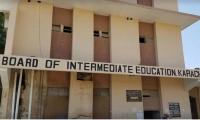YANGON: Aye Mar sits with her seven children in their Yangon kitchen and worries whether their meal of rice and stringy vegetables -- all she can afford in coup-stricken Myanmar -- will satisfy their hunger.
The national economy and banking system have been paralysed since a military power-grab which pushed civilian leader Aung San Suu Kyi out of office in February. Livelihoods have been lost after strikes and factory closures, fuel prices have shot up and those lucky enough to have bank savings face day-long queues to withdraw their cash.
Venturing out in public to earn a living has also become a safety hazard against the backdrop of an indiscriminate and brutal crackdown on dissent that has killed more than 800 civilians, according to a local monitoring group.
In a country which in normal times exports rice, beans and fruit, millions will go hungry in the coming months, the World Food Programme has warned. "We have to feed our children so they don’t starve," Aye Mar says, sitting barefoot in the commercial capital, a baby swinging in a hammock overhead.
The 33-year-old is out of work, along with her husband who has been forced to take any odd job on offer -- including digging septic tanks. Food vendor Wah Wah, 37, says price increases since the coup mean customers can no longer afford something as modest as a bowl of dried fish.
"I can’t sell it because customers cannot afford to buy it... even if I sell it at 500 kyats (US$0.33) per bowl," she told AFP. "Everyone has to spend money carefully to be safe because no one has jobs. We live with fear because we don’t know what will happen."
Father-of-three Win Naing Tun, 26, said those who could previously afford to eat pork regularly have been forced to turn to fish paste and vegetables. And those who survived on that limited diet before "now can only afford to eat white rice with salt," he told AFP.
Price hikes have hit remote areas particularly hard -- near the Chinese border in Kachin state, rice is almost 50 per cent more expensive, according to the WFP. The cost of transporting produce from farms to cities has also jumped after an estimated 30 per cent fuel price hike since the coup.
The WFP estimates that within the next six months, as many as 3.4 million more people will go hungry in Myanmar and it is poised to triple its emergency food assistance. A grassroots community food donation programme is proving to be in high demand in Yangon, Myanmar’s commercial capital. "They are happy when we donate food. Some even cry," volunteer May, not her real name, told AFP.
People queue to enter St. Peter's Basilica to pay respects as Pope Francis lies in state, as seen from Rome, Italy,...
UK minister Rachel Reeves. — AFP/FileBERLIN: A top German diplomat has said he is “really optimistic” that...
Ana Toni, Brazil’s chief executive of the Cop30 summit. — Reuters/FilePARIS: Europe is “absolutely vital” to...
This handout photo taken and released by the Royal Thai Police on April 25, 2025, shows Thailand's national police...
Then-Senator Fernando Collor de Mello, also a former Brazilian president, during a vote session on the impeachment of...
Debris of the house of Adil Thokar, allegedly linked to the Pahalgam terror attack, that was demolished in Bijbhera,...







